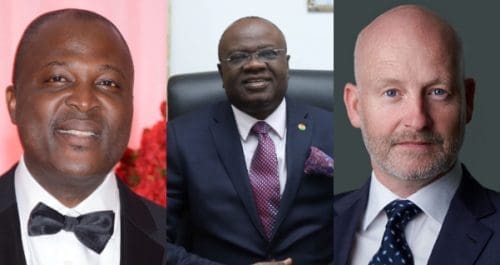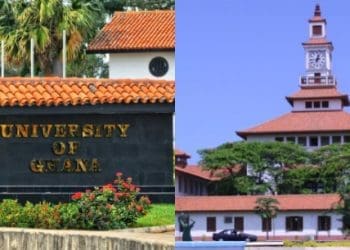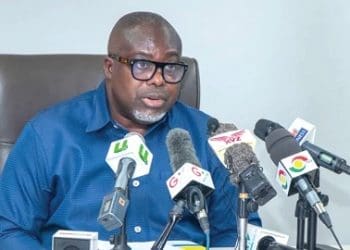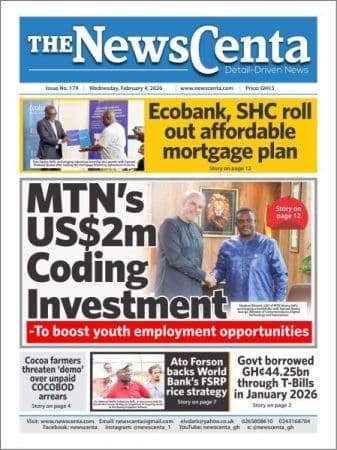The Minority Caucus in Parliament is calling for an urgent investigation into the increasingly contentious dispute between Engineers & Planners (E&P) and Azumah Resources over the Black Volta gold concession, warning that the integrity of Ghana’s mineral governance framework is now under threat.
In a statement released on Wednesday, July 16, 2025, and delivered by Mr. Kwaku Ampratwum-Sarpong, Ranking Member on the Lands and Natural Resources Committee, the Minority described the situation as “grave,” citing potential conflicts of interest, legal inconsistencies, and regulatory lapses.
“We are not being melodramatic when we say that this affair poses grave concerns about potential and perceived conflicts of interest,” Mr. Ampratwum-Sarpong said.
“The credibility of our mineral governance regime is on trial.”
No-objection letter under scrutiny
At the heart of the dispute is a no-objection letter allegedly issued by the Minerals Commission, which appears to have allowed E&P to advance its interest in the Black Volta concession, despite unclear evidence of full ministerial approval. The legitimacy and timing of the letter have become key points of controversy.
The Minority is particularly alarmed that the letter may have been used to secure financial backing from the ECOWAS Bank for Investment and Development (EBID), which they believe did not adequately assess the legal status of the transaction before committing support.
“While these developments would normally be celebrated,” the statement reads, “the ongoing controversy threatens to douse everything… with regrettable suspicion.”
The Caucus is demanding a comprehensive ministerial briefing on the matter and has warned that should responses prove unsatisfactory, it will initiate a Parliamentary inquiry into the entire affair.
Two companies, one mine, no clarity
The clash between E&P and Azumah Resources has exposed critical failures in the administration of Ghana’s mining policy. Both companies claim rights to the Black Volta concession in the Upper West Region, resulting in operational delays and a legal stalemate.
Despite reported mediation efforts by the Ministry of Lands and Natural Resources, the two parties have continued along “parallel tracks”, each pursuing separate legal and commercial strategies, while local communities and the national economy suffer from the inactivity.
“How is it that two parties are able to proceed on parallel tracks with rival claims?” the Minority queried, describing the Ministry’s handling of the matter as inadequate and damaging to investor confidence.
Policy contradictions and lost opportunities
The Minority argues that the government’s actions contradict Ghana’s stated commitment to transparency, legal certainty, and local content in the extractive sector.
The ongoing confusion, they say, violates the Minerals and Mining Policy (2014) and sends dangerous signals to both current and prospective investors.
“This is a recipe for investor uncertainty,” Mr. Ampratwum-Sarpong warned.
“These are the very conditions that erode investor confidence and undermine the rule of law in our natural resource governance.”
Beyond legal and governance concerns, the impasse is now undermining economic opportunities.
The Black Volta concession, the Minority noted, has the potential to create hundreds of direct jobs and thousands more indirectly in one of Ghana’s most economically deprived regions.
“Delays mean missed royalties, stalled development funds, and broader investor hesitation at a time when the country can least afford it,” the statement said.
Political overtones and institutional responsibility
The Minority has also raised concerns about perceived political connections between E&P and individuals in government, warning that such affiliations—if left unaddressed—could reinforce the view that certain entities enjoy preferential treatment in Ghana’s regulatory system.
“It is as much for the benefit of E&P and its eminent founder that such concerns be properly and effectively managed,” Mr. Ampratwum-Sarpong noted.
“The ECOWAS Bank and other stakeholders must also observe the ‘do no harm’ principle, especially amid ongoing litigation.”
The Caucus has posed six detailed questions to the Minister of Lands and Natural Resources, demanding clarity on how regulatory decisions were made, who authorised what, and whether all parties acted within the law.
They insist that Parliament must be fully informed and involved before any final resolution is accepted, asserting the need to uphold the rule of law, equitable governance, and Ghana’s international reputation as a stable mining jurisdiction.
“Let this Parliament not be found wanting,” the statement concluded.
“We must restore credibility to our mining governance and protect Ghana’s global standing.”












